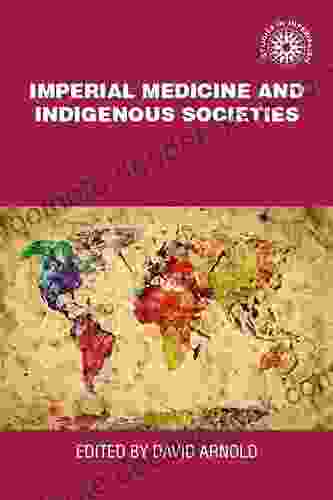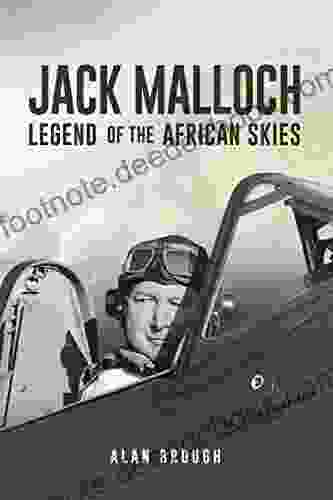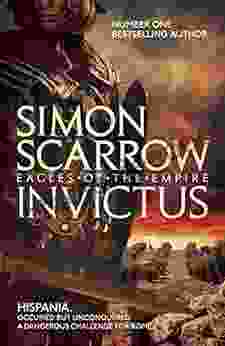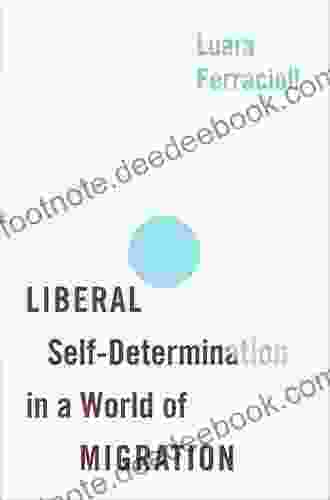Imperial Medicine and Indigenous Societies: Studies in Imperialism

Imperial medicine, the medical practices and policies of European colonial powers, has had a profound impact on indigenous societies. This article explores the complex relationship between imperial medicine and indigenous societies, examining the ways in which it has both benefited and harmed indigenous peoples.
The of Imperial Medicine
The arrival of Europeans in the Americas, Africa, and Asia brought with it new diseases and new medical technologies. European medical practitioners often saw indigenous medical practices as primitive and ineffective. They introduced their own medical practices, which they believed were superior. This of imperial medicine had a number of consequences for indigenous societies.
5 out of 5
| Language | : | English |
| File size | : | 1051 KB |
| Text-to-Speech | : | Enabled |
| Screen Reader | : | Supported |
| Enhanced typesetting | : | Enabled |
| Word Wise | : | Enabled |
| Print length | : | 49 pages |
On the one hand, imperial medicine did lead to some improvements in health outcomes for indigenous peoples. For example, the of vaccines and antibiotics helped to reduce the incidence of disease.
On the other hand, imperial medicine also had a number of negative consequences for indigenous societies. For example, the of new diseases, such as smallpox and measles, decimated indigenous populations.
In addition, imperial medicine often ignored or marginalized indigenous medical practices. This led to a loss of traditional knowledge and a decline in the status of indigenous healers.
The Impact of Imperial Medicine on Indigenous Societies
The impact of imperial medicine on indigenous societies has been complex and varied. In some cases, imperial medicine has led to improvements in health outcomes. In other cases, it has had negative consequences, such as the of new diseases and the marginalization of indigenous medical practices.
The following are some of the key ways in which imperial medicine has impacted indigenous societies:
- The of new diseases: The arrival of Europeans in the Americas, Africa, and Asia brought with it new diseases that decimated indigenous populations. These diseases included smallpox, measles, and influenza.
- The marginalization of indigenous medical practices: European medical practitioners often saw indigenous medical practices as primitive and ineffective. They introduced their own medical practices, which they believed were superior. This led to a decline in the status of indigenous healers and a loss of traditional knowledge.
- The creation of health disparities: Imperial medicine has often led to the creation of health disparities between indigenous and non-indigenous populations. This is due to a number of factors, including the unequal distribution of resources, the lack of access to quality healthcare, and the discrimination faced by indigenous peoples.
Imperial Medicine and Indigenous Health Today
The legacy of imperial medicine continues to impact indigenous health today. In many countries, indigenous peoples continue to face health disparities, such as higher rates of infant mortality, chronic disease, and mental illness.
There is a growing movement to decolonize indigenous health. This movement seeks to address the legacy of imperial medicine and to promote the health and well-being of indigenous peoples. Decolonization efforts include the following:
- The revitalization of indigenous medical practices: Indigenous peoples are increasingly working to revitalize their traditional medical practices. This includes the training of new healers, the development of new programs, and the incorporation of traditional knowledge into mainstream healthcare.
- The promotion of health equity: Decolonization efforts also seek to promote health equity between indigenous and non-indigenous populations. This includes advocating for policies that address the social determinants of health, such as poverty, discrimination, and lack of access to quality healthcare.
- The empowerment of indigenous peoples: Decolonization efforts seek to empower indigenous peoples to take control of their own health and well-being. This includes providing indigenous peoples with the resources and support they need to make informed decisions about their health.
The relationship between imperial medicine and indigenous societies is complex and ongoing. Imperial medicine has had both positive and negative impacts on indigenous health. Today, there is a growing movement to decolonize indigenous health and to promote the health and well-being of indigenous peoples.
5 out of 5
| Language | : | English |
| File size | : | 1051 KB |
| Text-to-Speech | : | Enabled |
| Screen Reader | : | Supported |
| Enhanced typesetting | : | Enabled |
| Word Wise | : | Enabled |
| Print length | : | 49 pages |
Do you want to contribute by writing guest posts on this blog?
Please contact us and send us a resume of previous articles that you have written.
 Book
Book Novel
Novel Page
Page Text
Text Reader
Reader Library
Library Paperback
Paperback Magazine
Magazine Newspaper
Newspaper Paragraph
Paragraph Sentence
Sentence Bookmark
Bookmark Glossary
Glossary Foreword
Foreword Preface
Preface Synopsis
Synopsis Footnote
Footnote Scroll
Scroll Codex
Codex Tome
Tome Bestseller
Bestseller Classics
Classics Library card
Library card Narrative
Narrative Reference
Reference Dictionary
Dictionary Thesaurus
Thesaurus Narrator
Narrator Resolution
Resolution Catalog
Catalog Periodicals
Periodicals Research
Research Journals
Journals Reading Room
Reading Room Rare Books
Rare Books Interlibrary
Interlibrary Study Group
Study Group Thesis
Thesis Awards
Awards Reading List
Reading List Mir Yar Ali Khan
Mir Yar Ali Khan Springtide Research Institute
Springtide Research Institute Charlotte Mason
Charlotte Mason Edward Vilga
Edward Vilga Mallory Monroe
Mallory Monroe Dael Orlandersmith
Dael Orlandersmith Lea Rawls
Lea Rawls Sandra Owens
Sandra Owens Ana E Contreras R
Ana E Contreras R Janet Ahlberg
Janet Ahlberg Craig Simpson
Craig Simpson Amy Chazkel
Amy Chazkel Carolyn Wells
Carolyn Wells Jess Mccann
Jess Mccann Jeremy Banas
Jeremy Banas Sunjeev Sahota
Sunjeev Sahota Jack Canfield
Jack Canfield Elizabeth Partridge
Elizabeth Partridge Daniel Partner
Daniel Partner Martha Buelt
Martha Buelt
Light bulbAdvertise smarter! Our strategic ad space ensures maximum exposure. Reserve your spot today!
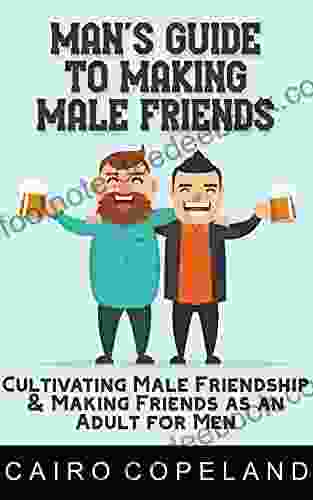
 Benjamin StoneCultivating Male Friendship: Making Friends as an Adult For Men The Missing...
Benjamin StoneCultivating Male Friendship: Making Friends as an Adult For Men The Missing...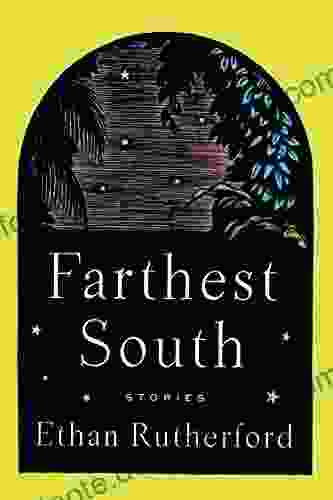
 John Dos PassosFarthest South and Other Stories: A Journey into the Uncharted Realms of...
John Dos PassosFarthest South and Other Stories: A Journey into the Uncharted Realms of... Clayton HayesFollow ·6.6k
Clayton HayesFollow ·6.6k Raymond ParkerFollow ·4.5k
Raymond ParkerFollow ·4.5k Christian BarnesFollow ·17k
Christian BarnesFollow ·17k Jaylen MitchellFollow ·8.4k
Jaylen MitchellFollow ·8.4k Michael CrichtonFollow ·18.1k
Michael CrichtonFollow ·18.1k William ShakespeareFollow ·14.7k
William ShakespeareFollow ·14.7k Dennis HayesFollow ·6.3k
Dennis HayesFollow ·6.3k Noah BlairFollow ·19.4k
Noah BlairFollow ·19.4k

 Allen Ginsberg
Allen GinsbergUnveiling the True Meaning of Enough: A Comprehensive...
: In the relentless pursuit of progress and...

 Clay Powell
Clay PowellHawker Hunter: The Jet Fighter that Shaped British...
Nestled in the halls of aviation...
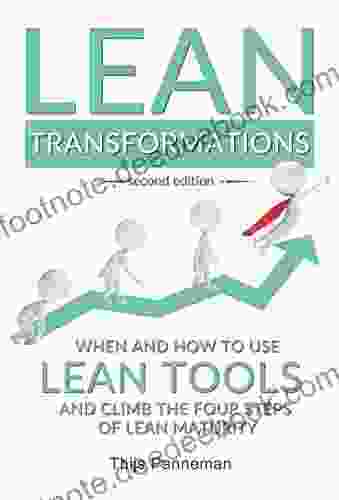
 Alec Hayes
Alec HayesWhen and How to Use Lean Tools and Climb the Four Steps...
Lean is a management...

 Trevor Bell
Trevor BellVolume of Charlotte Mason Original Homeschooling: A...
Charlotte Mason's original...

 John Parker
John ParkerAscending Tristan da Cunha: A Comprehensive Guide to...
Prepare yourself for an extraordinary journey...
5 out of 5
| Language | : | English |
| File size | : | 1051 KB |
| Text-to-Speech | : | Enabled |
| Screen Reader | : | Supported |
| Enhanced typesetting | : | Enabled |
| Word Wise | : | Enabled |
| Print length | : | 49 pages |


